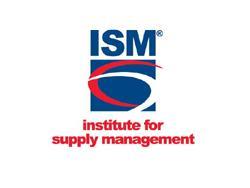PMI Dips Slightly to 49% in November
Tempe, AZ, January 3, 2022- The November Manufacturing Purchasing Managers’ Index (PMI) registered 49%, 1.2 percentage points lower than the 50.2% recorded in October, according to the latest Manufacturing ISM Report On Business.
Regarding the overall economy, this figure indicates expansion for the 30th month in a row after contraction in April and May 2020.
The Manufacturing PMI figure is the lowest since May 2020, when it registered 43.5%.
The New Orders Index remained in contraction territory at 47.2%, 2 percentage points lower than the 49.2% recorded in October.
The Production Index reading of 51.5% is a 0.8-percentage point decrease compared to October’s figure of 52.3%.
The Prices Index registered 43%, down 3.6 percentage points compared to the October figure of 46.6%; this is the index’s lowest reading since May 2020 (40.8%).
The Backlog of Orders Index registered 40%, 5.3 percentage points lower than the October reading of 45.3%.
The Employment Index returned to contraction territory (48.4%, down 1.6 percentage points) after being unchanged in October at 50%.
The Supplier Deliveries Index reading of 47.2% is 0.4 percentage point higher than the October figure of 46.8%. Except for last month, the Supplier Deliveries Index hasn’t been at this level since February 2012 (47%).
The Inventories Index registered 50.9%, 1.6 percentage points lower than the October reading of 52.5%.
The New Export Orders Index reading of 48.4% is up 1.9 percentage points compared to October’s figure of 46.5%.
The Imports Index dropped into contraction territory at 46.6%, 4.2 percentage points below the October reading of 50.8%.
Six manufacturing industries reported growth in November, in the following order: apparel, leather & allied products; nonmetallic mineral products; primary metals; miscellaneous manufacturing; petroleum & coal products; and transportation equipment. The 12 industries reporting contraction in November, in the following order, are printing & related support activities; wood products; paper products; textile mills; fabricated metal products; furniture & related products; chemical products; plastics & rubber products; computer & electronic products; food, beverage & tobacco products; machinery; and electrical equipment, appliances & components.
